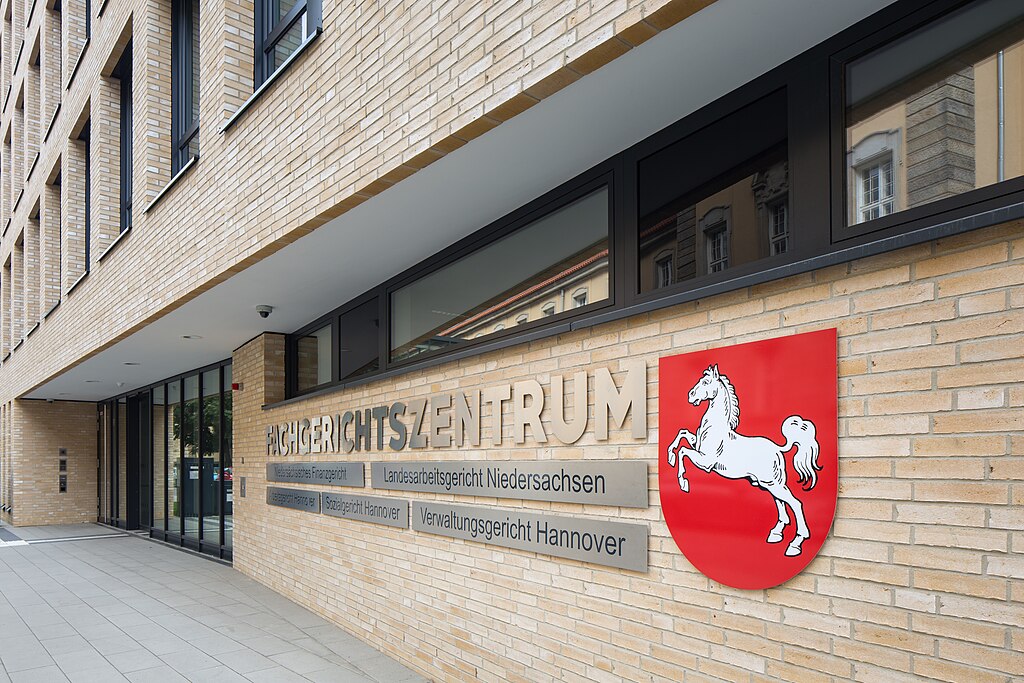Germany | Transfer Pricing
August 28, 2024
German Tax Court Decision on Principal Model Without Exit Tax
Case Overview: US Multinational's European Reorganization

Picture: "Office building Fachgerichtszentrum special courts Bahnpark Augustenstrasse Leonhardtstrasse Hinueberstrasse Ferdinandstrasse Mitte Hannover Germany 02" by Christian A. Schröder (ChristianSchd) is licensed under CC BY-SA 4.0.
A U.S. multinational company's decision to restructure its European operations, primarily involving a shift to a Swiss principal model, has sparked legal debate in Germany. The reorganization led to a reassessment of tax obligations by German authorities, specifically concerning exit tax. However, the German tax court ruled against the imposition of an exit tax, a decision that is now under review by the Federal Tax Court.
Case Reference: Lower Saxony Tax Court, 08/03/2023 – 10 K 117/20
BACKGROUND
The U.S. multinational operated various European subsidiaries, including those in Germany, which were responsible for distribution and production.
These subsidiaries managed their own inventory, logistics, and held intellectual property (IP) rights under a non-exclusive license agreement with a U.S. affiliate.
Before the restructuring, strategic activities, such as investment strategies, production planning, and key account management, were centralized in a French subsidiary.
RESTRUCTURING INTO A SWISS PRINCIPAL MODEL
In 2011, the company designated a Swiss entity as the primary entrepreneurial unit, replacing the French subsidiary's central management role.
European subsidiaries were restructured as either contract manufacturers, toll manufacturers, or limited-risk distributors.
Contract Manufacturers and Toll Manufacturers: Compensated on a cost-plus basis.
Limited-Risk Distributors: Compensated according to the Transactional Net Margin Method (TNMM).
Two critical payments were involved in this reorganization:
A transfer package compensating German subsidiaries for reduced future profit expectations.
A payment for the early termination of the existing IP license agreement.
COURT ANALYSIS AND FINDINGS
The Lower Saxony Tax Court focused on two main questions in its decision:
Constructive Dividend: The court evaluated whether the reorganization implied a constructive dividend due to the transfer of business opportunities.
Taxable Transfer of Functions: It examined if there was a taxable transfer of functions due to the restructuring.
COURT’S CONCLUSIONS:
No Constructive Dividend: The court ruled that no business opportunity was transferred that would amount to a constructive dividend. The decreased profit expectations of German subsidiaries did not constitute a business opportunity.
No Taxable Transfer of Functions: The court found no tangible or intangible assets, business opportunities, or benefits were transferred from the German subsidiaries to the Swiss principal. The early termination of the IP license agreement was fairly compensated and did not equate to a constructive dividend.
Aspect | Court Findings |
|---|---|
Constructive Dividend | No transfer of business opportunity was identified |
Transfer of Functions | No tangible/intangible asset or business benefit transfer |
IP License Termination | Fairly compensated; no constructive dividend inferred |
Asset Movement | No movement of inventory, tangible assets, or customer base |
CONCLUSIONS AND RECOMMENDATIONS
The ruling pertains to the legal framework prior to 2022, where exit tax rules were more stringent. The decision suggests that even under the current laws, which allow for a broader scope of taxable events, no transfer of functions might still be identified.
The court's strict interpretation of what constitutes a business opportunity and the transfer of functions is consistent with its earlier rulings on exit tax.
A key factor was the shift of major management functions from France to Switzerland, rather than directly from Germany, influencing the court’s exit tax ruling.
The decision clarifies that agreeing to terminate the IP license agreement does not equate to transferring an intangible asset.
Although a transfer package was paid, it did not influence the court's ruling on the absence of a taxable transfer of functions. This might open a possibility for the taxpayer to seek a refund on the taxes paid on this package.
SOURCE/ RECOMMENDED READ:
About Authors:
Egypt | VAT
Egyptian Tax Authority (ETA) Rolls Out a Transparent, Hassle-Free VAT System for Global Providers of Digital and Remote Services.
Italy | VAT
Italy Seeks Nearly €1 Billion in VAT payments from Meta, X, and LinkedIn, Targeting Transactions from 2015 to 2022
Egypt | Tax Policy
Fostering Trust, Partnership, and Business Confidence Through Fair and Efficient Tax Services
EU | Customs
The European Commission extends tariff suspension on U.S. imports until April 14, 2025, aiming to resolve trade tensions and avoid escalation
OECD BEPS | Turkey
Amount B will not be applied to transactions involving distributors, sales agents, and brokers operating in Turkey
Saudi Arabia | Big 4
The ban could lead Saudi authorities to implement stricter compliance regulations for consulting firms
EU | Transfer Pricing
MNEs will be required to submit their first top-up tax information return by 30 June 2026, tax authorities will need to exchange this information by 31 December 2026
EU | Tax Policy
Focus on Green Transition, Addressing the VAT gap, and Commitment to Global Tax Reform are some of the priorities
Reach your target audience
Contact us at hello@taxspoc.com